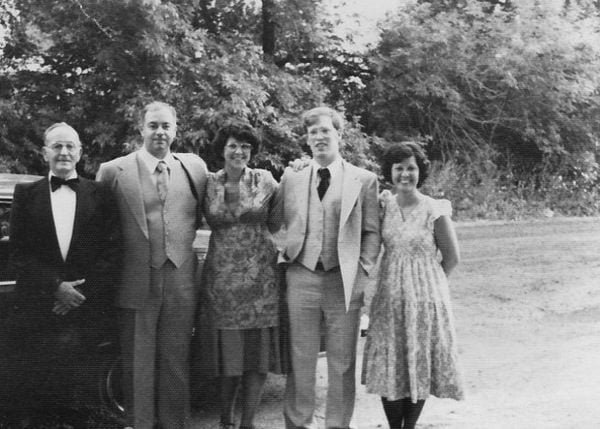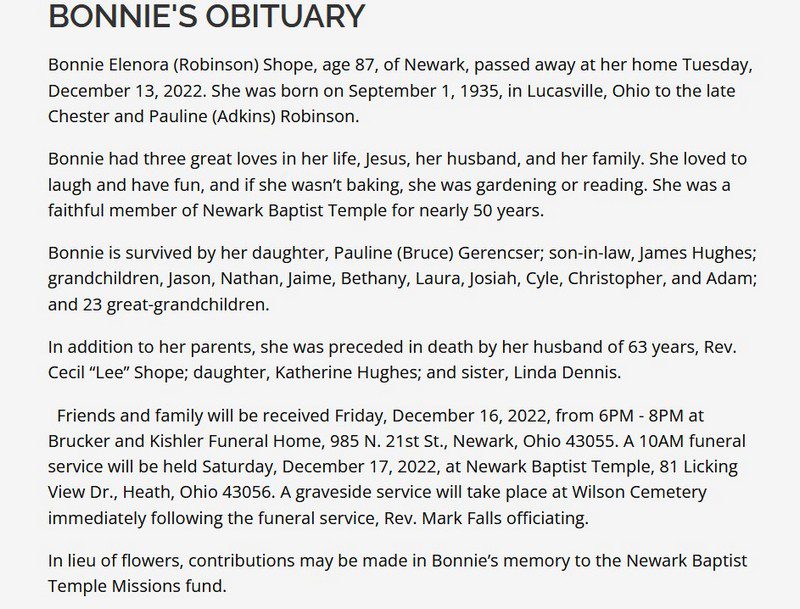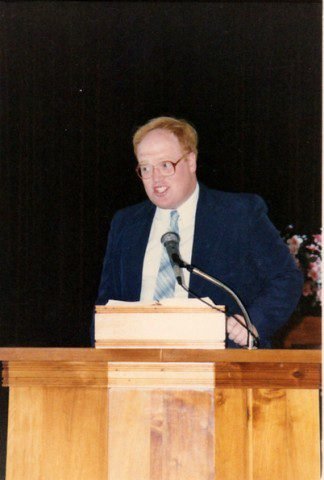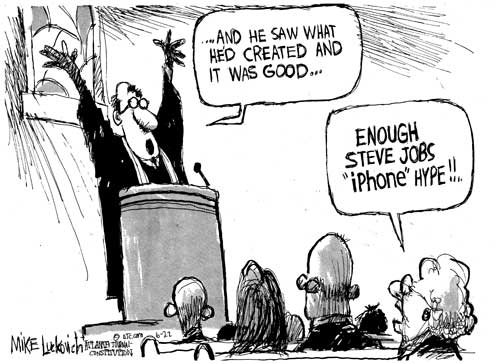
In the fall of 1976, I met a beautiful, dark-haired seventeen-year-old girl named Polly. We started dating, and before long we were in love. A month or so after we started dating, Polly’s parents, Lee and Bonnie, drove up from their apartment in the central Ohio community of Newark to Midwestern Baptist College in Pontiac, Michigan to visit Polly. Both of us were freshman students. Polly’s dad had graduated a few months earlier and was now the assistant pastor at the Newark Baptist Temple. Polly’s uncle, the pastor of the Baptist Temple, was a 1960s Midwestern graduate.
I vividly remember meeting Polly’s parents that fall day. Lee was cordial and friendly. Bonnie was standoffish, leaving me with the impression that she didn’t like me. Contrast my first experience with Polly’s mom and that of Polly meeting my mom and sister for the first time in the spring of 1978. Polly was met with love and acceptance and more than a few questions about whether she knew what she was getting into marrying Butch. (Polly would not meet my father until the day of our wedding).
On Valentine’s Day in 1977, Polly and I got engaged. I bought her a 1/4-carat diamond ring from Sears and Roebuck for $225. We set a July 15, 1978 date for our wedding at the Baptist Temple, officiated by Polly’s uncle and dad.
Over the next seventeen months, Polly’s mom went out of her way to make me feel unwelcome and unwanted. During holidays and summers, I would drive 4-6 hours to Newark to visit Polly. One summer, I lived in Bryan, working two full-time factory jobs. I would then get in my car early on Saturday and drive four hours south to see Polly. Late in the evening, I would return home. Polly pleaded with her mom (who wore the pants in the family) to let me spend the night, but to no avail. I was so tired when I left Newark that it was impossible for me to drive all the way home without spending several hours sleeping at a rest stop or along the berm of a highway. On several occasions, Ohio State Highway Patrolmen stopped, thinking my car was abandoned. On another occasion, I was stopped outside of Delaware for weaving due to being so tired.
On Valentine’s Day in 1978, Polly’s mom and dad came to visit her again. By then, we already had our wedding plans in place. Both of us were excitedly looking forward to our big day. During their visit, Polly’s mom told her that they (she) were forbidding her to marry me. Why? My parents were divorced, and divorce is hereditary, so Polly couldn’t marry me lest she ended up divorced. Left unsaid was the real reason for not allowing Polly to marry me: Bonnie didn’t like me. She thought Polly could do better than marrying a lowly boy such as I.
After Polly’s parents returned to Newark, we talked about eloping. We came a “let’s do it” away from jumping in my car, leaving college (eloping was cause for immediate expulsion), and getting married. Cooler heads prevailed. Polly called her mom and told her that with or without their (her) blessing we were getting married. This would be the first time that Polly ever stood up to her mom (who could be a passive-aggressive bully). Polly’s mom relented and the wedding was on. What didn’t change was Bonnie’s dislike of me as a person.
The weekend before our wedding, Polly and I drove out to Dawe’s Arboretum for some alone time. Boy, did we need it. Polly was told she had to be back home at a certain time. We lost track of time and arrived back home late. Here we were nineteen and twenty-one, a week away from getting married, and Bonnie lit into us like we were schoolchildren. Of course, what she was worried about is whether we had been fornicating. We said nothing and got ready for church.
Polly and I have been married for almost forty-five years. We have six wonderful children and thirteen grandchildren. (Bonnie refused to claim two of our grandchildren, saying they weren’t “blood.”) We have built a good life together. It’s not been easy. We have faced all sorts of trials and adversity, yet our love for one another has endured.
One constant in our marriage has been Bonnie’s disapproval. No matter what we did, where we lived, what church I pastored, or how we raised our children, Polly’s mom disapproved. This got worse after we left Christianity in 2008. Bonnie blamed me for ruining her daughter and grandchildren, even though she never had a meaningful conversation with us about why we deconverted. For the past fifteen years, the proverbial elephant in the middle of the room got bigger and bigger, so much so that we found it impossible to have a meaningful relationship with Polly’s mom. (Polly’s dad died in November 2020.)
For the past decade, Polly dutifully called her mom every Sunday at 9:00 pm. They would talk for exactly one hour. Bonnie was insistent that they talk for a least one hour, even when they had nothing to talk about. Out of love and duty, Polly called, even though on some Sundays it took a bit of push from me for her to do so. Why? She was estranged from her mom. Their relationship was strained, with Bonnie causing untold hurt and harm to her ever-faithful daughter with her passive-aggressive, at times, mean-spirited comments and judgments. To the end, we never measured up and I was to blame for everything.

Bonnie died on Tuesday at the age of eighty-seven. Her obituary speaks of the fact that she was a devoted follower of Jesus, a fifty-year (actually forty-six) member of the Newark Baptist Temple. In lieu of flowers, Bonnie asked that people make donations to her church’s missions fund.
The obituary spoke of her love for family. Which family? Her church family? Polly’s sister’s family? Bonnie’s sister’s family? Certainly not the Gerencsers. Oh, she “loved” us in the way disapproving mothers and grandmothers do. A begrudging love that wished we had worshipped the right God and lived our lives the IFB-approved way. Her love for my family was different from that of her love for her family in Newark. You see, they are all Christians. Some of them even attend the Baptist Temple. The Gerencsers? We are a bunch of mutts, beer-swilling, HBO-watching heathens who love to curse. We have forsaken the tribal God, choosing to live “worldly” lives.
We were legally responsible for Polly’s mom’s legal affairs until a few months ago. By then, she had moved in with our nephew and niece, both of whom attend the Baptist Temple. Two months ago, we went to Newark to visit Bonnie, knowing that her time was short. We had a delightful visit, until the last few minutes. As we were getting up to leave, Bonnie let us know that she no longer wanted us to care for her affairs; that she wanted our nephew and niece to take care of things. A few days later, our niece was placed on Bonnie’s bank accounts. After Bonnie died, we also learned that she had called the funeral home and told them she didn’t want us to have anything to do with her funeral. Why would she do these things?
Religion.
In particular, Independent Fundamentalist Baptist (IFB) Christianity.
Bonnie was an IFB member her entire life. Her husband was an IFB pastor. Bonnie bought into every aspect of the “one true faith.” She viewed everything through IFB glasses. As long as Polly and I were IFB, she grudgingly accepted that I was a God-called preacher. Once we left the IFB fold, our relationship with her became more strained. And once we left Christianity altogether? We crossed a line that brought tension-filled relationships, hurt feelings, and harsh words. Both Polly and I tried to maintain a good relationship with Bonnie, but over time it became harder and harder to do so. Eventually, our relationship devolved into one where you see relatives a few times a year and go on with your lives until the next holiday.
Bonnie devoted her time and money to her church and what would be called in our neck of the woods her real family: her church, Polly’s sister’s children and grandchildren (Polly’s sister was killed in a motorcycle accident in 2005), and her sister’s family, the Dennises. Certainly, proximity played a part. The Gerencsers lived four hours away. Everyone else lived around the corner.
Mom paid little to no attention to our grandchildren, while at the same time giving gifts and money to her “real” family. Sure, there were the proverbial gifts at Christmas, but birthdays, graduations, and other significant events were rarely acknowledged. Lee and Bonnie came to visit from time to time and we did the same, but our relationship was not what it could or should have been. I can think of no other reason for this except religion.
Recent events have hurt Polly beyond measure. She’s resilient, but her mom’s rejection of her and forty-five years of disapproval and harsh judgment have caused untold harm. Tomorrow, we will drive to Newark and spend the night at the Hampton Inn in preparation for the funeral on Saturday at 10:00 am. We will not attend the viewing — sorry we cannot handle two hours of Bonnie’s church friends. We want to avoid interaction with people as much as possible, especially our nephew who called awhile back and screamed at me for twenty minutes (I finally hung up on him), calling me names, disparaging my family, and threatening me with physical violence. But, hey, he loves Jesus. [He apologized at the funeral. I appreciate him doing so.]
We will attend the funeral at the church. I am not sure why we are going to do so. Bonnie is dead, we hate the church, and despise its pastor. I suppose we will go for the sake of our children. They don’t have the same baggage with the church (or Bonnie) as we do. We know what to expect. Five minutes of talk about the deceased and fifty-five minutes of Jesus. ‘Tis the way IFB churches do things. Bonnie’s pastor has already asked the church to pray for Mrs. Shope’s unsaved loved ones. The “Gerencsers” are those unsaved loved ones. The rest of the family in attendance is “saved.” We will be the targets of evangelization. It would be what Mrs. Shope would want, right?
Polly and I are left with what to make of our relationship with her mom. Both of us loved her, but what are we to make of our strained relationship; the disapproval; the harsh words, and judgment? We can’t unring the bell, so to speak, so we are left with thoughts of what might have been. If only Bonnie could have loved me as I am and loved us as we are, how different our relationship might have been. Instead, we are left with a fractured relationship, one that is now too late to repair.
We will quietly say our goodbyes on Saturday, lamenting all that has been lost thanks to Fundamentalist Christianity. And when we get in our car to return home, we will raise in the rearview mirror a middle finger salute to Newark and the Baptist Temple, glad that we will never, ever make the trek to Newark again. Nothing remains for us. Even the money that was supposed to go to Polly has been partially spent, and it wouldn’t surprise us if the rest of it ended up in other pockets or the church’s coffers. One more time for Mom to show who and what she really loves.
Note: Polly read this post beforehand and approves of what I wrote.
Bruce Gerencser, 68, lives in rural Northwest Ohio with his wife of 47 years. He and his wife have six grown children and sixteen grandchildren. Bruce pastored Evangelical churches for twenty-five years in Ohio, Texas, and Michigan. Bruce left the ministry in 2005, and in 2008 he left Christianity. Bruce is now a humanist and an atheist.
Your comments are welcome and appreciated. All first-time comments are moderated. Please read the commenting rules before commenting.
You can email Bruce via the Contact Form.











